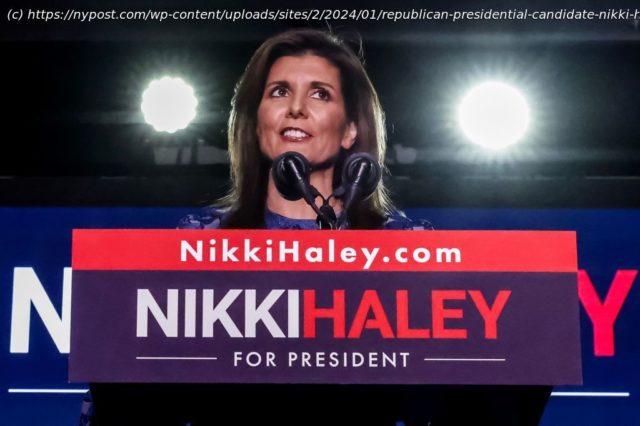Presidential candidate Nikki Haley suffered a double digit loss to Donald Trump in New Hampshire Tuesday night, but is hopeful her home state of South Carolina will finally bring her victory.
Nikki Haley is no darling of South Carolina politics.
Despite her substantial record of public service in the Palmetto State — six years as a state legislator, followed by six years as governor — the 52-year-old is staring down a blowout loss to Donald Trump in next month’s primary.
The limited polling of South Carolina shows Haley about 30 points behind Trump, 77, according to RealClearPolitics
In addition, the former president has secured the backing of more than 150 current and former state elected officials — including the governor, lieutenant governor and both Republican senators.
Haley has argued she doesn’t need the endorsements of the “political elite” and claims that she’s unpopular with South Carolina electeds because she held them accountable as governor.
With a loss in Haley’s home state likely to kill any chance of her being the Republican nominee, the question remains: Where did it all go so horribly wrong?
‘Moderate at best’
Politics is about relationships, and South Carolina is no exception.
The problem facing Haley is that whatever relationships she had in Columbia, the state capital, are almost unsalvageable, South Carolina GOP operatives tell The Post.
One of the accomplishments Haley talks most about on the campaign trail is one of the first laws she enacted as governor back in 2011, which required roll call votes on most pieces of legislation rather than unrecorded voice votes.
At the time, the move toward transparency was in keeping with Haley’s Tea Party-influenced persona of an outsider demanding legislative accountability.
“I pushed back on them when I was governor. I forced them to show their votes on the record, [so] that they weren’t hiding by voice votes,” Haley exulted at a campaign stop in Epping, New Hampshire, this past weekend. “I forced them to pass ethics reform that they didn’t want to do.”
In retrospect, two state officials backing Haley say, her championing the recorded vote law was the origin of her current unpopularity.
State Rep. Nathan Ballentine, who served in the state legislature with Haley, recalled that when the recorded vote bill came up for a vote during the 2010 gubernatorial campaign, her “biggest enemies” asked for the tally to be scheduled when she would be away from the capital and out on the campaign trail.






